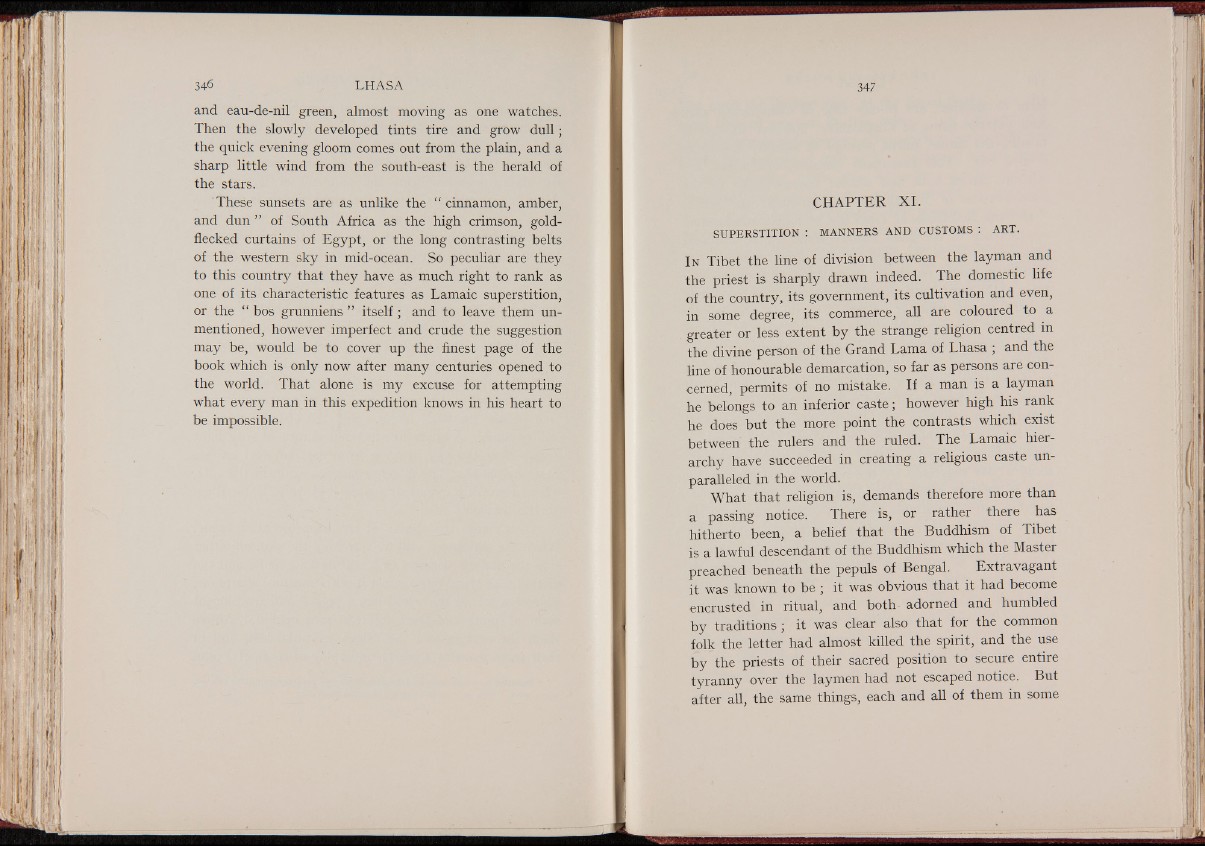
and eau-de-nil green, almost moving as one watches.
Then the slowly developed tints tire and grow d ull;
the quick evening gloom comes out from the plain, and a
sharp little wind from the south-east is the herald of
the stars.
These sunsets are as unlike the “ cinnamon, amber,
and dun ” of South Africa as the high crimson, gold-
flecked curtains of Egypt, or the long contrasting belts
of the western sky in mid-ocean. So peculiar are they
to this country that they have as much right to rank as
one of its characteristic features as Lamaic superstition,
or the “ bos grunniens ” itself; and to leave them unmentioned,
however imperfect and crude the suggestion
may be, would be to cover up the finest page of the
book which is only now after many centuries opened to
the world. That alone is my excuse for attempting
what every man in this expedition knows in his heart to
be impossible.
CHAPTER XI.
S U P E R S T I T IO N : M A N N E R S A N D C U S T O M S : A R T .
In Tibet the line of division between the layman and
the priest is sharply drawn indeed. The domestic life
of the country, its government, its cultivation and even,
in some degree, its commerce, all are coloured to a
greater or less extent by the strange religion centred m
the divine person of the Grand Lama of Lhasa ; and the
line of honourable demarcation, so far as persons are concerned,
permits of no mistake. If a man is a layman
he belongs to an inferior caste; however high his rank
he does but the more point the contrasts which exist
between the rulers and the ruled. The Lamaic hierarchy
have succeeded in creating a religious caste unparalleled
in the world.
What that religion is, demands therefore more than
a passing notice. There is, or rather there has
hitherto been, a belief that the Buddhism of Tibet
is a lawful descendant of the Buddhism which the Master
preached beneath the pepuls of Bengal. Extravagant
it was known to be ; it was obvious that it had become
encrusted in ritual, and both adorned and humbled
by traditions ; it was clear also that for the common
folk the letter had almost killed the spirit, and the use
by the priests of their sacred position to secure entire
tyranny over the laymen had not escaped notice. But
after all, the same things, each and all of them in some